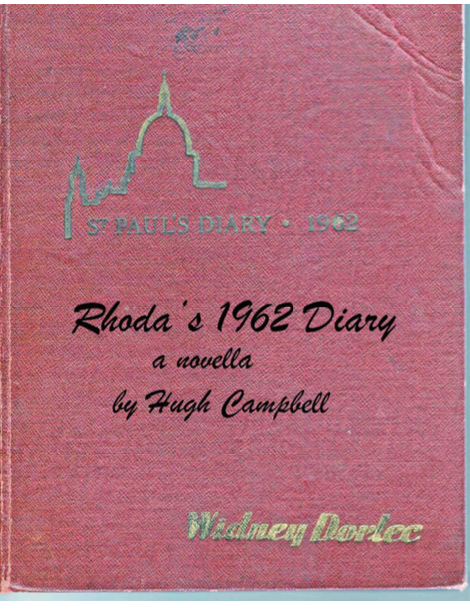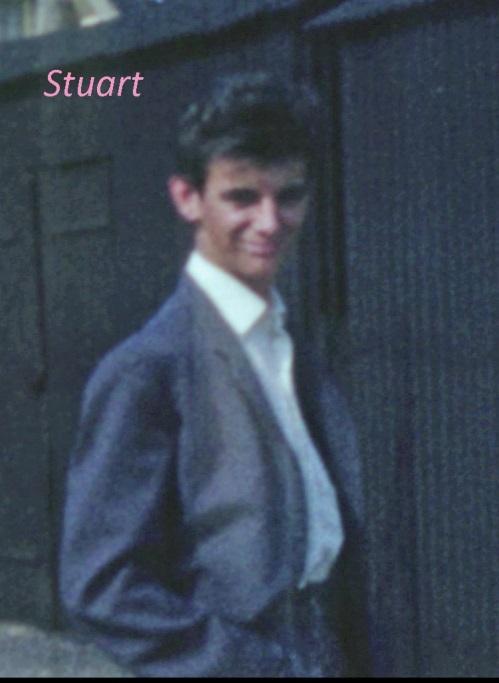In Rhoda’s 1962 Diary, my mother talks about friendships, or rather what she doesn’t like in friendships. She also talks about owing money to her children.
February 4
My mother is no better than my father regarding writing an indecipherable script. I can’t exactly replicate what she has written, but I will make an attempt:
“I must put my mind on slimming, as I hate ugly fat women, like some of my friends are beginning to look. Made a rum baba today, wasn’t so good. But we all ate it.”
Her statement is highly comical! She doesn’t want to be “fat and ugly like her friends,” but she and her ‘fat’ friends are making rum baba cakes that aren’t even “so good”; but they eat them anyway! My mother seems to be oblivious to the fact that you get fatter by eating cakes! My mother was the supreme ‘cake and toffee maker’, so her slimming idea was bound to fail. In other words, the irony is that she and her friends like attending cookery classes and making ‘calorie bombs’ like Battenburg cake and rum baba; not only that, but she was the family cook and spent a lot of her time baking apple and rhubarb pies, jams, fudges, and toffees!
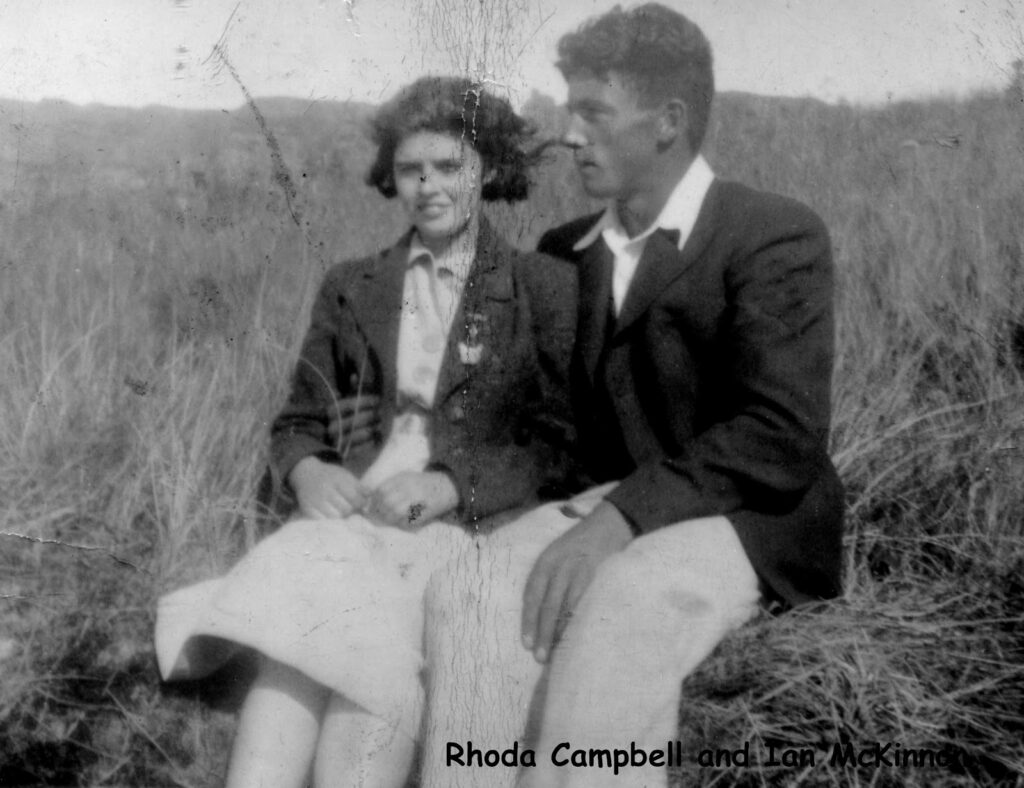
Of course, when I was a boy I never thought my mother was ‘fat’. But looking the old 1960s home movie, it seems she was no longer the slim, diminutive, delectable young girl of the 1930s; the girl that entranced the boys of the Isle of Eigg, such as Ian MacKinnon, and later her husband, my father!
February 5
“I owe Stuart 2/- (shillings) of his pocket money up to date.”
As mentioned elsewhere, my mother was responsible for the family finances. Thus, she also doled out ‘pocket money’ to her sons.
Pocket money – Ten Shillings Note
Regarding pocket money, I remember how my mother ‘bribed’ me when we lived in Billericay, Essex, in the 1960s; she said she would give me ten shillings of pocket money every week if I started college. Ten shillings was quite a sizeable sum at the time, as it was enough to buy 40 cigarettes or 4 pints of beer, so at least I could get drunk once a week, or smoke myself to death! I agreed to the bribe. This was because I had worked for some weeks, around 1966, as an apprentice accountant in London at an absurdly low wage. It was like some re-enactment of a Victorian Dickensian novel! In other words, it wasn’t much of a future.
Wages that could hardly pay the train-fare, let alone other costs; and the pay would not increase that much during the course of the five-year traineeship. So the whole thing was just impractical. Thus, like Judas, I agreed to the deal and betrayed my accountancy career for ten pieces of silver. I used the ten shillings every week gambling in card games at the Constitutional Club, Billericay, where we used to play ‘3-card brag’ and poker.
I was quite the Cincinnati Kid and on some occasions, I ‘robbed’ grown men of their week’s wages, which enabled me to buy large Jaguar cars, gold cufflinks, gold snooker cues, renew my fashionable wardrobe, and many other luxury consumer articles! On one occasion, I ‘robbed’ poor ‘Albert’ (a grey-haired working man) of his weekly wages. After all, I was a sharp young kid, adept at mathematics, logic and chess, with a capacity for lying, known as ‘bluffing’ in card games! So, it was easy work taking money from these hard working men. But empathy was not a word in my dictionary at the time. Unfortunately, I might have inadvertently contributed to some divorce proceedings!
The bribe, on the part of my mother, was not a well-thought-out strategy, as all I did at college was smoke cigarettes, drink coffee, and play bridge in the ‘common room’. That is, after I managed to get myself out of bed by around noon, I missed most of my college lectures. I flunked college but had a good time and made new friends! And I had ten shillings to finance my gambling activities, sometimes resulting in a ‘bonanza’ pay-out as mentioned.
On some occasions, I could earn the month’s wages of a grown man in an evening’s card game, although I was still a ‘boy’. In retrospect, this wasn’t my ‘fault’, but the ‘fault’ of ‘the gambler’, my elder brother Alistair, whom I followed around like some puppy dog. For example, to the Constitutional Club—but this is also a topic for my forthcoming Volume V (from 1962 to 1968-1969) of “No Woman, No Cry“, so it won’t be elaborated on here.

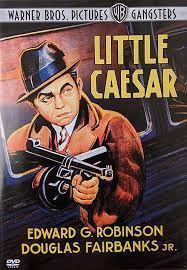
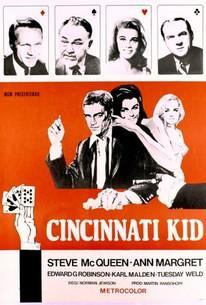
In conclusion, I didn’t usually go to the cinema with Alistair, but we went to see the “Cincinnati Kid” (1965), as this was part of our gambling ‘education’. Comically, in the film, Alistair sympathised with the character, “The Man” Howard, an older poker player played by Edward G. Robinson. I sympathised with the other main poker player in the film, Eric “The Kid” Stoner, played by Steve MacQueen.
Of course, Alistair had to sympathise with Edward G. because he was the hero of all the gangster films of the 1930s which were sent as re-runs on the TV in the late 1950s and early 1960s, such as when Edward G. played Al Capone in “Little Caesar” (1931). This was one of Alistair’s favourite gangster movies.
My brother ‘Al Capone’
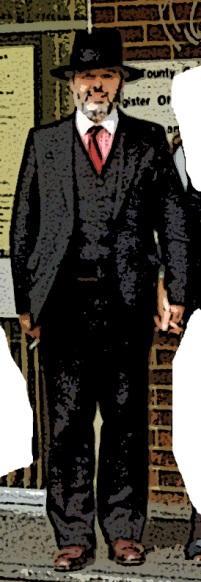
At 26 Hob Hey Lane, Alistair would often re-enact the scenes from the Al Capone film in front of the bathroom mirror, by putting on ‘mean looks’ and ‘talking tough’ like the bad guys in the films! Of course, he didn’t realise I was spying on him through the bathroom door that was slightly ajar. In other words, I became curious when I overheard all the strange ‘threatening’ voices emerging from the bathroom.
Alistair’s friends, like Geoff White in Billericay, also called him ‘Al’ – like the American mafia gangster Al Capone! Later in life, to elaborate on his ‘gangster persona’. He would often wear a trilby, pin stripe suit, black silk shirt with a white tie, and a trench coat. However, due to his admiration for Elvis Presley, he would confuse this persona by wearing blue suede shoes. In other words, his ‘persona’ was not thoroughly thought through and would include contrasting elements.
“You talking to me?”
It is perhaps difficult for the reader to envision my brother re-enacting the gangster scenes in front of the bathroom mirror ( like some sort of ‘camera’). Alistair would re-enact the gangster roles played by Edward G. Robinson, George Raft, Humphrey Bogart, and others. Perhaps the BBC had a tight budget in the 1950s and 1960s and would send reruns of the old American films from the 1930s and 1940s, with these actors as stars. My brother was ‘ahead of his time’. His bathroom ‘film movie re-enactments’ were replicated by Robert de Niro in the film “Taxi Driver” (see footnote for YouTube excerpt).
Blue suede shoes

As an addendum, Alistair and I travelled to Regents Street, London, to purchase expensive hand-made blue suede shoes, which could not be bought in provincial Billericay. I wore my blue suede shoes for months on end, even when they had holes in the soles. I had to use a newspaper or cardboard innersoles to stop grazing the soles of my feet on the pavement. However, one day when I was going to put on my blue suede shoes, which I kept in the hallway, they had mysteriously disappeared! No explanation for their disappearance was ever discovered. But, it seems that our mother would ‘secretly’ dispose of items of our clothing that she took a dislike to.


